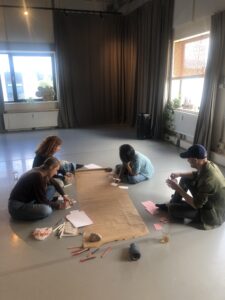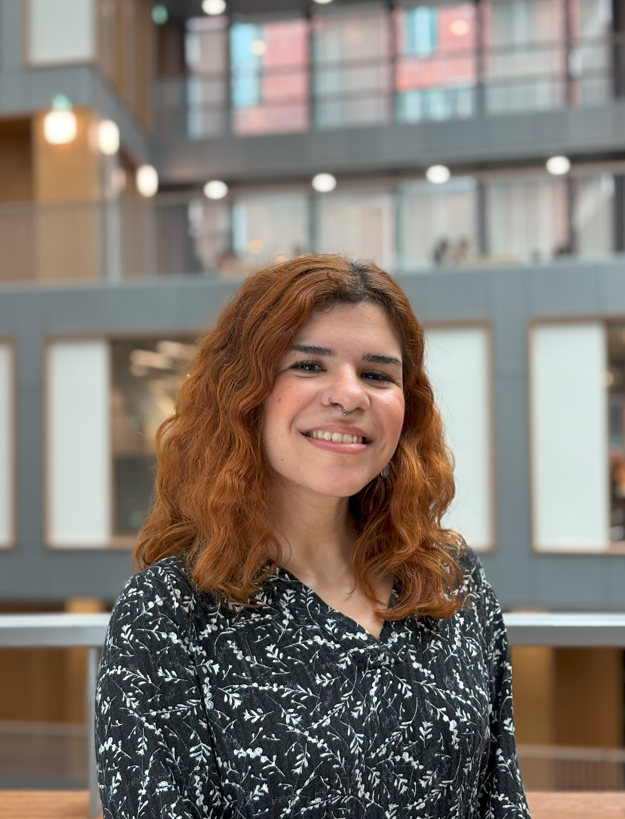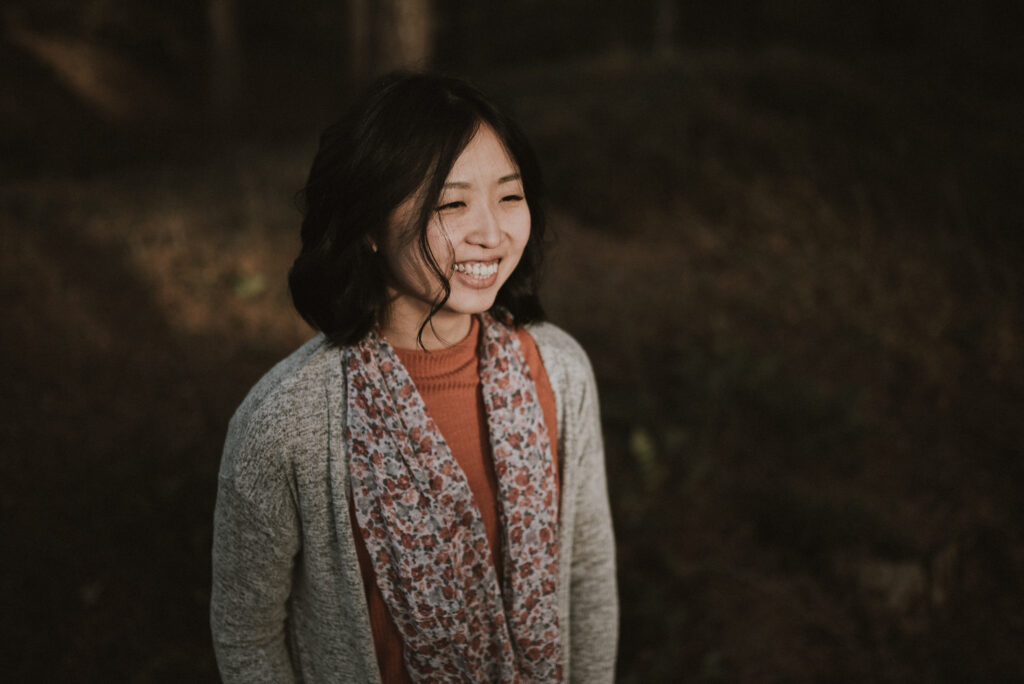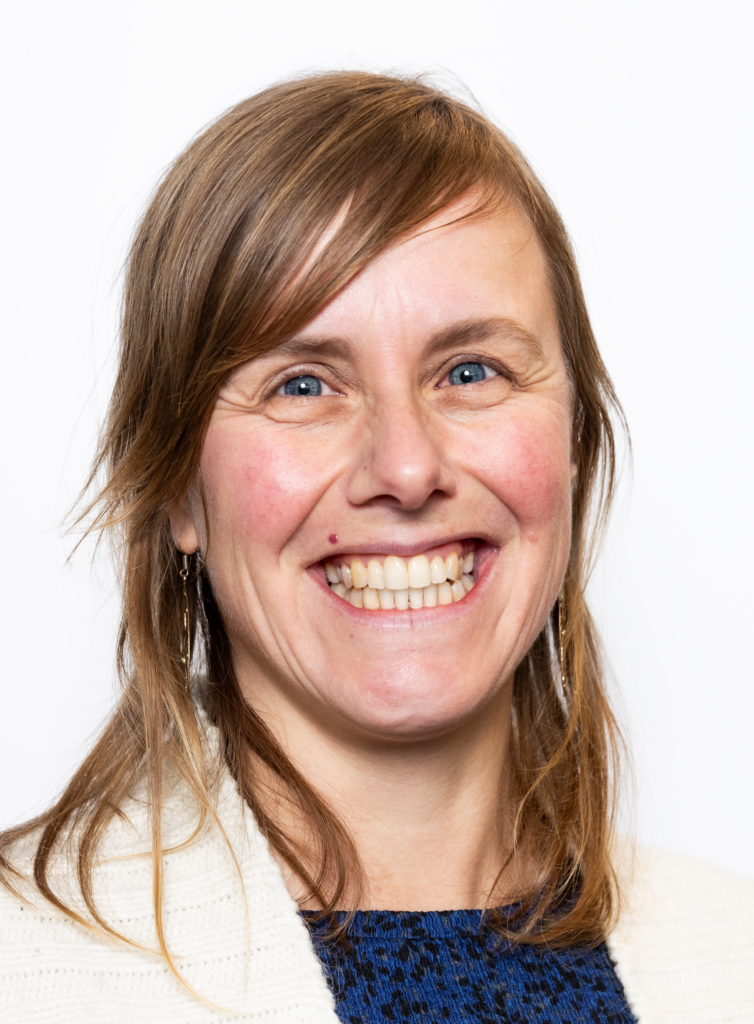CUCo is excited to welcome three inspiring academics as researchers-in-residence for the coming year: Nikoletta Georgiou (Vrije Universiteit Amsterdam), Yiling Hung (Wageningen University & Research), and Meyke Roosink (University of Twente). They will both pursue their individual research interests during their residency and examine how their projects intersect with the overarching theme of equity in knowledge creation. This theme addresses both who participates in creating knowledge and how different modes of learning—such as visuals versus text or physical versus cognitive approaches—are valued. For CUCo, this collaboration provides a valuable opportunity to reflect on and strengthen our own practices.
Over the course of the year, the researchers-in-residence will host work visits for one another and the CUCo team, fostering exchange and mutual learning. Summaries of these visits will be shared on the CUCo website. The residency will culminate in June 2026 with a workshop or symposium at CUCo, where a wider audience can engage with and deepen the exploration of these themes.

at the first collective session.
Please find the full introductions of Nikoletta, Yiling and Meyke below.

Nikoletta Georgiou
Vrije Universiteit Amsterdam
About Nikoletta
I am currently a PhD researcher at the Vrije Universiteit Amsterdam and carry a multidisciplinary background in social sciences, psychology and communications. My research focuses on structural exclusion and epistemic injustice in clinical trials, particularly the invisibility of groups who are excluded not only from participation but even from recognition within research frameworks, such as rural and digitally uneducated populations. By combining deep structural analysis and transdisciplinary, participatory methods, I aim to reimagine what access to and equity in research could truly mean. Towards this aim, I draw on theories such as inter-, intra- and anti-categorical and situated intersectionality, epistemic and social justice, and ‘issue publics’. In this research endeavour, I expect and welcome unusual results that will guide me and my research through this process in uncovering justice and inclusion from people and for people.
With(in) CUCo, I hope to explore more playful and bottom-up ways towards intersectional research inclusion based on the lived experience, through creative and embodied mediums such as performances and embodiment practices. I am excited to explore ways in which research becomes a collaborative, inspiring and people-centered process rather than a means to a pre-defined institutional end, and how this can be actually combined with mainstream academic research in ways that promote public engagement.

Yiling Hung
Wageningen University & Research
About Yiling
Can we read visual elements the way we read text? My research project focuses on foodscapes and migration. During my residency at CUCo, I would like to give attention to the roles of visual elements in research. The visual elements are, for example, hand-drawn maps and photos. Researchers analyze these visual elements to find problems or evidences to support their hypothesis. However, in my view, when it comes to presenting the research findings, visual elements usually are not given as much space as textual elements. I aim to use my own ongoing PhD project as a case study, to experiment the idea of incorporating visual and textual elements in presenting the research findings.

Meyke Roosink
University of Twente
About Meyke
As Health Technology Implementation Specialist at the University of Twente, I support students, colleagues, projects, and programmes with translating best practices from implementation science to concrete actions, with a focus on contextual inquiry, collaboration, societal impact and “learning-by-doing”. As Biomedical Researcher, I am interested in implicit and explicit learning, the integration of sensory information and movement, and a biopsychosocial-spiritual approach to health and disease.
From both angles I see that in research it can be challenging to truly ‘act beyond our bubble’. During my residency at CUCo I intend to further explore and address this challenge by using a so-called “DUO bicycle” as vehicle, literally! In other words: get physically active (act) in an unusual way (beyond), outside of sedentary, academic, and digital contexts (our bubble).
Together with CUCo’s experts and teams I will try to answer the following questions: What is the need for activity-based collaboration (on a bicycle)? What are available alternatives? Is there a positive business case for activity-based collaboration? And does it positively contribute to empathy, collaboration, and health?
In addition, as an overarching “researchers-in-residence” theme, we will explore how activity-based collaboration could contribute to promoting equity in research, i.e. by valuing theory AND practice, the cognitive AND the physical, the numbers AND the stories, et cetera. Looking forward!